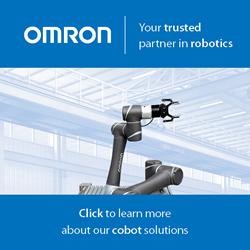ARM Offers Free Access to Cortex-M0 Processor IP to Streamline Embedded SoC Design
ARM DesignStart portal now offers SoC designers free ARM Cortex-M0 processor IP for design, simulation and prototyping, and a low-cost simplified licensing package for commercialization.
CAMBRIDGE, England--ARM is making it far easier to design, prototype and produce system-on-a-chip (SoC) components by offering free pre-commercialization use of ARM Cortex-M0 processor IP and low-cost FPGA prototyping. The package is available through the ARM DesignStart portal and includes:
* A Cortex-M0 processor and System Design Kit (SDK), featuring system IP, peripherals, test bench and software
* A free 90 day license for the full suite of ARM Keil® MDK development tools.
The package will enable the design, simulation and testing of new SoCs using a pre-configured Cortex-M0 processor without incurring the capital costs typically associated with up-front licensing. There is an option to move to the prototyping stage with a $995 ARM Versatile Express FPGA development board.
Developers wishing to enter full commercial production can then purchase a simplified and standardized $40,000 fast track license. This includes commercial use of ARM Cortex-M0 processor IP, SDK, and Keil MDK development tools, along with ARM technical support.
The upgraded DesignStart portal makes ARM technology available to the broadest range of SoC developers, from startups to established vendors, and makes the path to full commercial production easier and faster than ever.
"The DesignStart portal is available to all SoC designers, but will be particularly valuable to companies that are incorporating ARM technology for the first time," said Nandan Nayampally, vice president of marketing, CPU group, ARM. "We want to enable startups, makers and other entrants into IoT as well as embedded applications to accelerate their development path with an excellent starting point around which to build their technology and rapidly achieve commercially viable solutions. The new portal package achieves this by offering an easy route to design and production with industry-leading ARM technology, backed by the broadest embedded software ecosystem."
"By offering the Cortex-M0 processor IP in a low cost package, ARM is making it far easier for companies to create their own SoCs," said Dermot Barry, vice president, semiconductor solutions, S3 Group. "By using proven mixed signal IP from S3 Group and ARM processor IP, our customers have already reduced their bill of materials by up to 90 percent."
"There are multiple product benefits that can be delivered by custom SoCs, such as lower power demands, improved functionality, smaller chip size and a reduced bill of materials," said Dr. Zhongjie Wu, President and CEO, Mindmotion. "We applaud ARMs move to provide many more companies with the ability to develop custom SoCs."
"We anticipate a significant move to custom SoC development, particularly for Internet of Things applications," said Julian Kingsbury, vice president, Asia Pacific, Sondrel. "ARM is the low-power processor of choice for IoT and we are delighted to work with them to help bring the benefits of custom SoCs to startups and OEMs alike."
"There is an increasing trend in China for custom SoCs in IoT, mixed signal and general embedded applications," said Jerry Ardizzone, senior vice president, worldwide sales and marketing, Brite Semiconductor. "This move by ARM, along with Brites IoT platform expertise will help ensure that more developers can easily access ARM processors with the broadest ecosystem of IP, software and tools, to better address the market that fabless customers are targeting."
The updated DesignStart portal, which also gives access to a broad range of ARM Artisan physical IP, is available for immediate use at http://designstart.arm.com
Featured Product

Discover how human-robot collaboration can take flexibility to new heights!
Humans and robots can now share tasks - and this new partnership is on the verge of revolutionizing the production line. Today's drivers like data-driven services, decreasing product lifetimes and the need for product differentiation are putting flexibility paramount, and no technology is better suited to meet these needs than the Omron TM Series Collaborative Robot. With force feedback, collision detection technology and an intuitive, hand-guided teaching mechanism, the TM Series cobot is designed to work in immediate proximity to a human worker and is easier than ever to train on new tasks.
